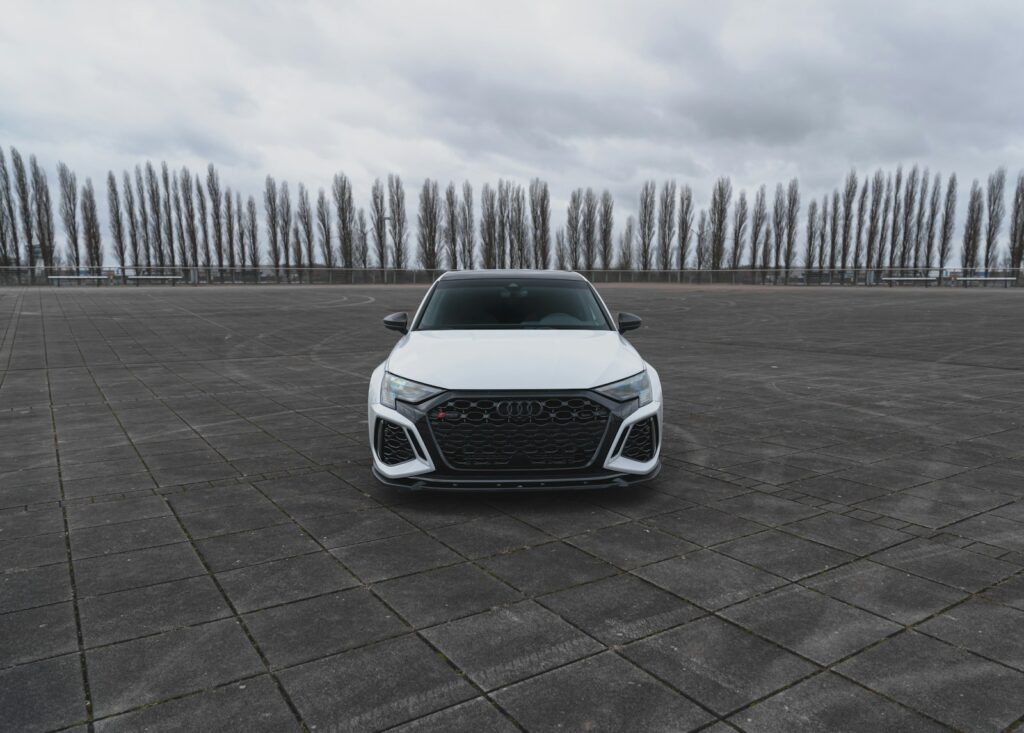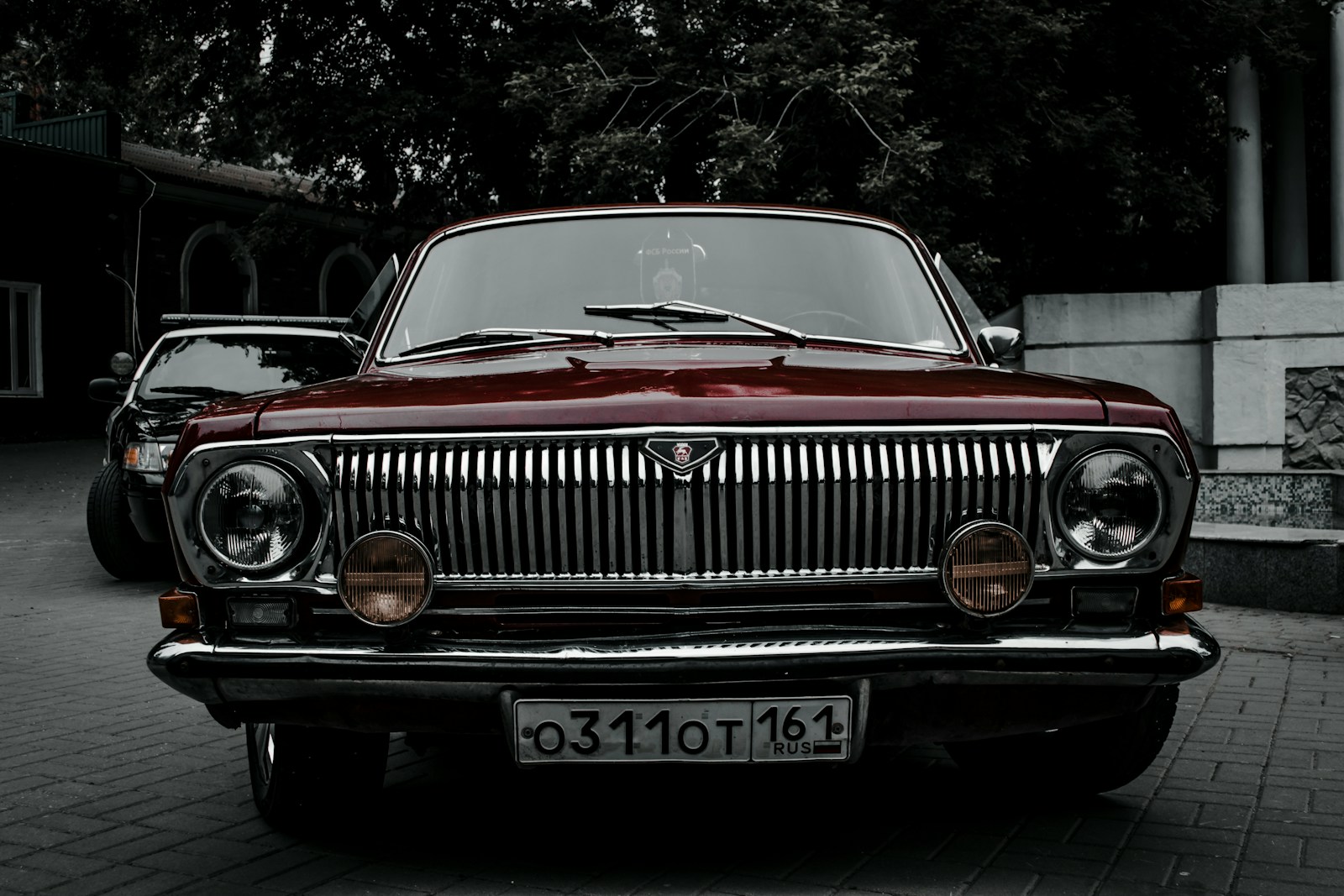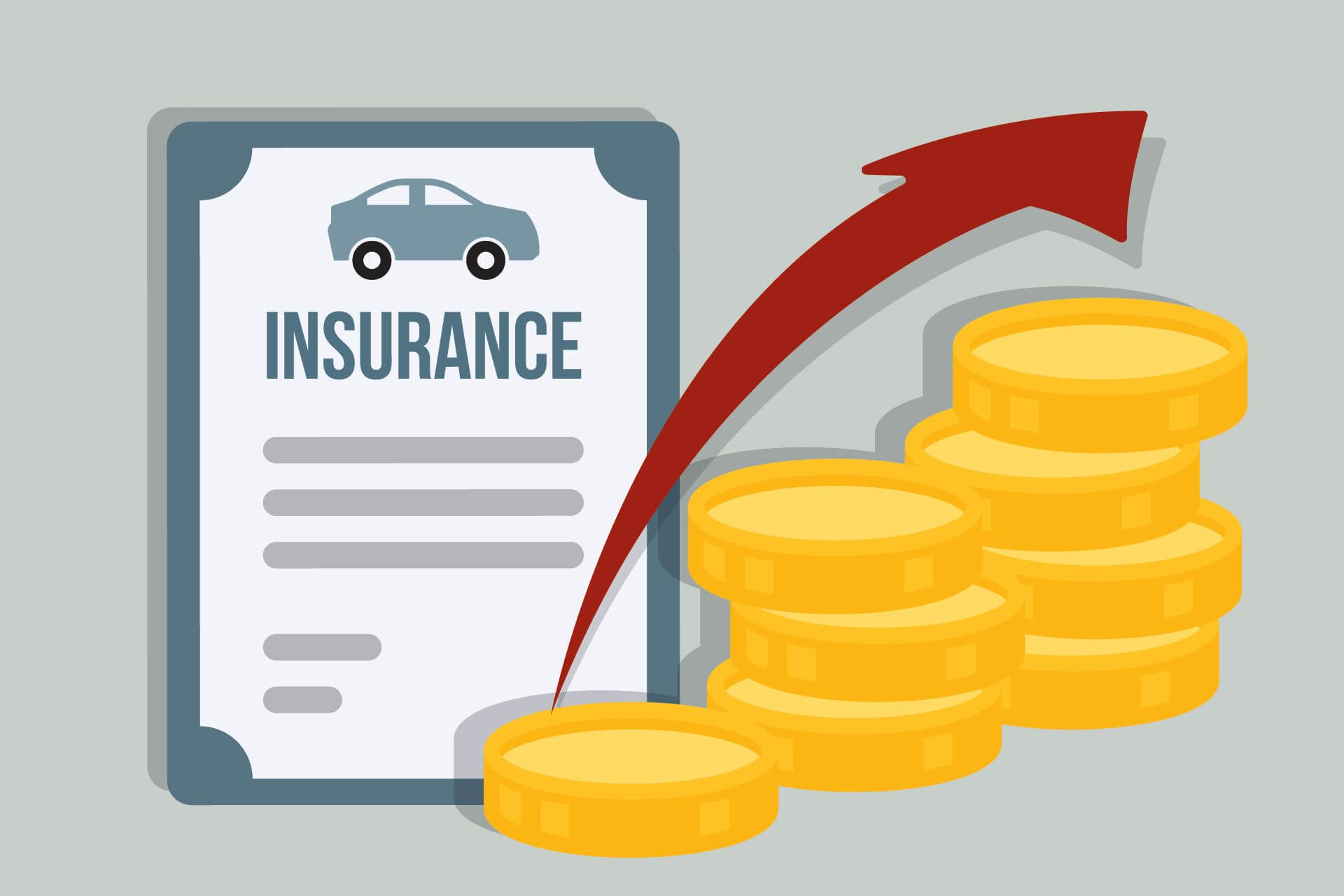
Each year, over 9 million people purchase cars from auto auctions, making it a popular choice for finding vehicles at affordable prices. The allure is undeniable: a vast inventory including clean title, salvage, and rebuilt vehicles, all accessible from home. These events promise significant savings compared to traditional dealerships, a true treasure trove for informed buyers. Yet, this enticing landscape is a complex minefield, where missteps can turn a hopeful purchase into costly regret.
The ‘as-is’ nature of most auction sales demands exceptional vigilance from buyers. The process can feel daunting, especially for first-timers, and ‘making mistakes can lead to costly regrets.’ This comprehensive guide aims to equip you, the aspiring auction participant, with critical knowledge to navigate this high-stakes environment successfully. We will provide ‘practical and actionable guidance’ that transforms potential risks into well-informed decisions.
‘Even though purchasing a vehicle from an auto auction is an effortless process, there are inevitable mistakes you can make as a new buyer.’ These errors, from choosing the wrong platform to overlooking vital details, ‘can negatively impact your buying experience’ and lead to substantial financial losses. By understanding these foundational missteps, you can approach the auction block with confidence. You’ll be prepared to ‘make a smart purchase’ and maximize savings.

1. **Selecting the Wrong Auto Auction**One of the most fundamental errors a potential buyer can make is ‘selecting the wrong auto auction.’ In the excitement of hunting for a bargain, many overlook crucial distinctions between various auction platforms and their specific rules. This initial misstep can profoundly impact your entire buying experience, affecting everything from eligibility to vehicle availability and the ease of the bidding process itself. Failing to choose correctly can quickly derail your plans.
Failing to differentiate between public and dealer-only auctions, or online versus on-site events, can lead to immediate frustration. ‘You must be vigilant when finding an online auto auction to buy your next car.’ Some platforms, for instance, ‘require you to visit the onsite auction site, preventing you from bidding online.’ Others, like Alliance Auto Auction, ACV Auctions, and Fairway Auto Auction, are explicitly ‘dealer-only’ platforms. This means ‘you must have a dealer’s license’ to participate, immediately excluding individual buyers.
For individual buyers without a dealer’s license, focusing solely on platforms open to the public is essential. A Better Bid (ABB) serves as a prime example, operating as a ‘100% online auto auction open to the public.’ This platform is ‘Copart-registered, providing vehicles usually reserved for car dealers,’ and crucially, allows you to ‘buy trucks, cars, SUVs, motorcycles, RVs, boats, and other types of automobiles without a dealer’s license.’ This opens up a vast inventory.
Similarly, Twin Cities Auctions ‘democratizes vehicle sales by making them accessible to everyone, without the need for a dealer’s license,’ offering a diverse selection of vehicles. This platform is particularly beneficial for lower-income buyers. These public-access platforms often come with features designed for ease of use for non-dealers, enhancing the overall experience. Understanding these unique selling points is key to finding the right fit for your purchase.
Beyond accessibility, consider the practical advantages of convenience and specialized features. ABB boasts ‘more than 300,000+ vehicles in its inventory,’ sourced from insurance and rental companies. It also features an ‘automatic bidding system,’ which can place bids on your behalf. Twin Cities Auctions further enhances buyer convenience with ‘online bidding and offers nationwide shipping options.’ By diligently researching and ‘finding a reliable auction marketplace’ that aligns with your status and preferences, you establish a solid foundation for a smoother, more successful experience. Neglecting this crucial step can trap you in an unsuitable system.

2. **Failure to Thoroughly Research the Vehicle**Once you’ve confidently navigated the initial hurdle of selecting the appropriate auction platform, the next significant obstacle often encountered is the ‘failure to conduct a thorough research’ on the vehicle itself. ‘Most people forget to conduct a thorough research by getting caught up in the excitement of buying a new car.’ This oversight extends beyond superficial details. It encompasses a fundamental understanding of the car’s true market value, its genuine suitability for your specific needs, and its potential long-term operational costs.
Without this essential foundational knowledge, you risk making an impulsive decision driven purely by the allure of a perceived good deal. This can lead to a purchase that, while initially appearing economical, proves far from beneficial in the long run. Before you even consider placing a bid, it is ‘best to consider the type of car you want to buy.’ This involves addressing practical considerations: ‘explore whether you want a sedan, hatchback, or an SUV,’ and definitively determine ‘if you want an automatic or manual transmission.’ Such clarity ensures alignment with your requirements.
Beyond mere personal preference, it is imperative to objectively ‘research the market price of each vehicle and compare it with the listings featured on the auction.’ This diligent comparison forms the bedrock of an informed buying strategy. Industry insights reveal that ‘professional auction buyers spend an average of 3 hours researching each vehicle’s market value before bidding.’ This contrasts sharply with amateur buyers, who typically ‘spend less than 30 minutes.’ This stark difference in diligence highlights the importance of thorough preparation to truly ‘know the car’s value’ and effectively circumvent emotional overbidding.
Your comprehensive research toolkit should extend significantly beyond basic price comparisons. While ‘KBB (Kelley Blue Book) values for similar vehicles’ offer a valuable starting point, you must also meticulously examine ‘recent auction results for comparable models’ to gain auction-specific market insights. Factor in ‘local market pricing for retail vehicles’ to establish an accurate benchmark for potential savings. Do not overlook ‘seasonal demand fluctuations for specific vehicle types’ and ‘regional preferences that affect values,’ as these external factors can profoundly influence what genuinely constitutes a fair price in your specific locale.
The profound absence of such comprehensive research can regrettably lead to acquiring a vehicle that fundamentally misaligns with your lifestyle. It can also result in unforeseen and prohibitively costly repairs, or simply prove to be far less of a bargain than initially perceived. The ultimate buying decision should never be ‘based on the first good deal they find.’ Instead, it must stem from a rigorously ‘informed purchase decision’ built upon a thorough assessment of the vehicle’s long-term value and its genuine suitability. This critical step serves as an indispensable bulwark against future buyer’s remorse and unnecessary financial strain.

3. **Bidding Without a Pre-Purchase Inspection**Among the most critical and potentially financially damaging errors in the car auction journey is ‘bidding without a pre-auction inspection.’ This is not merely a sensible recommendation; it stands as a fundamental necessity to significantly mitigate inherent risks. The ‘harsh truth’ starkly reveals that ‘buyers of as-is cars face 3x higher repair costs compared to inspected vehicles.’ This alarming statistic unequivocally underscores the profound danger of relying solely on often limited descriptions or static photographs.
Among the most critical and potentially financially damaging errors in the car auction journey is ‘bidding without a pre-auction inspection.’ This is not merely a sensible recommendation; it stands as a fundamental necessity to significantly mitigate inherent risks. The ‘harsh truth’ starkly reveals that ‘buyers of as-is cars face 3x higher repair costs compared to inspected vehicles.’ This alarming statistic unequivocally underscores the profound danger of relying solely on often limited descriptions or static photographs.
The majority of vehicles offered at auction, representing ‘65% of auction vehicles,’ are sold under ‘as-is’ conditions. This crucial designation means ‘no warranty or guarantee of any kind’ is provided. Furthermore, you unequivocally ‘cannot return the vehicle for any reason’ once the transaction is complete. Any ‘hidden defects become your financial responsibility.’ This contractual reality elevates the importance of a pre-purchase inspection. It is often your singular, genuine opportunity to thoroughly assess the vehicle’s actual condition before ownership irrevocably transfers.
‘Auction houses usually allow potential buyers to inspect the cars before bidding,’ and ‘skipping this step can result in unexpected issues post-purchase.’ Therefore, you should ‘never bid without a thorough pre-auction inspection.’ It is highly advisable to ‘bring a qualified mechanic or invest in a professional pre-auction inspection service that costs around $100-300 but can save you thousands.’ This investment is minimal compared to the potential costs of unforeseen problems discovered later. This detailed scrutiny helps you identify ‘any issues not mentioned in the listing.’
During the actual inspection, it is absolutely crucial to meticulously examine a comprehensive array of key areas. This includes assessing the ‘engine condition and fluid levels’ to detect potential maintenance neglect or underlying mechanical issues. Thoroughly check ‘transmission performance’ for smooth operation, and critically evaluate ‘brake system integrity’ for safety. Pay close attention to ‘body damage and rust spots,’ as these can indicate past accidents or structural compromise. Finally, verify ‘electrical components functionality.’ This hands-on, expert assessment provides ‘crucial insights into the vehicle’s performance and handling’ that are utterly impossible to glean from a mere static viewing.
While the convenience of online auctions is undeniable, they inherently present challenges such as the ‘inability to test drive the vehicle.’ This deprives potential buyers of vital sensory insights into the car’s dynamic performance. Consequently, this makes a comprehensive pre-purchase inspection, even if conducted under time constraints, extraordinarily valuable. A professional inspection can frequently uncover ‘latent mechanical issues’ and offer a far more accurate representation of the car’s true condition. This empowers you to ‘assess the car’s condition’ based on tangible, expert evidence, rather than mere conjecture. ‘Ignoring inspection opportunities’ is a significant gamble with potentially devastating financial ramifications.

4. **Neglecting the Vehicle History Report**Another fundamental mistake that can unfortunately lead to severe financial and potentially legal woes is ‘ignoring the vehicle history report.’ This crucial document is far from merely a suggestion; it represents an ‘essential checklist’ item for any genuinely savvy auction buyer. Relying exclusively on the current physical appearance of a vehicle is an exceedingly dangerous gamble, as a significant number of auction cars harbor hidden pasts that can dramatically impact their intrinsic value, inherent safety, and ultimate legality.
Another fundamental mistake that can unfortunately lead to severe financial and potentially legal woes is ‘ignoring the vehicle history report.’ This crucial document is far from merely a suggestion; it represents an ‘essential checklist’ item for any genuinely savvy auction buyer. Relying exclusively on the current physical appearance of a vehicle is an exceedingly dangerous gamble, as a significant number of auction cars harbor hidden pasts that can dramatically impact their intrinsic value, inherent safety, and ultimate legality.
The stakes involved in a car’s historical record are incredibly high and cannot be overstated. An ‘alarming statistic’ unequivocally reveals that ‘approximately 13% of vehicles sold at auction have undisclosed accident histories.’ Even more concerning, ‘8% have salvage titles that aren’t properly disclosed.’ These are not minor cosmetic imperfections; rather, they signify fundamental underlying issues that can render a vehicle critically unsafe, exceedingly difficult to insure adequately, or even entirely impossible to legally register. This profound ‘lack of information can lead to purchasing a vehicle that requires costly repairs.’
To meticulously safeguard yourself from these substantial risks, it is absolutely paramount to ‘obtain the Vehicle Identification Number (VIN) before bidding’ on any vehicle. Subsequently, you must rigorously ‘run comprehensive history reports through AutoCheck or Carfax.’ These sophisticated reports are undeniably ‘invaluable tools for understanding a vehicle’s past.’ They possess the unique capability to ‘reveal if a car has been in an accident, had major repairs, or even if it’s been reported stolen.’ This due diligence is non-negotiable.
Furthermore, it is critical to ‘check for flood damage, especially when buying in hurricane-prone areas,’ and vigilantly ‘look for manufacturer buybacks or lemon law buyouts,’ which signify fundamental defects. As a particularly ‘hidden gem’ of due diligence, always make a point to ‘compare Odometer Disclosure Statements’ provided by the auction house with the overall condition and apparent wear of the vehicle. This comparative analysis is a vital safeguard against detecting ‘potential odometer rollback attempts,’ which are fraudulent practices designed to inflate a vehicle’s perceived value by falsifying its true mileage.
A superficially clean-looking car, despite its attractive facade, can very quickly transform into a significant ‘money pit’ or a persistent legal headache if it conceals a troubled past. ‘Many people sell their junk car for cash to a local dealer which is then put on auction,’ often without full and transparent disclosure. Neglecting these indispensable reports means you are, quite literally, ‘buying blind.’ This leaves you inherently vulnerable to uncovering ‘hidden mechanical issues’ and incurring unexpectedly significant post-purchase expenses. Diligently ‘checking car history reports to ensure you’re aware of any past issues’ is a critical, non-negotiable investment in your peace of mind and enduring financial security.

5. **Failure to Establish and Stick to a Realistic Budget**The exhilarating, fast-paced environment of an auction floor, or the intense rapid-fire clicking inherent in online bidding, can undoubtedly be intoxicating. This fervor, however, frequently leads to one of the most common and profoundly costly mistakes: the ‘failure to create and implement a budget,’ or, perhaps even more detrimentally, the inability to rigorously adhere to that pre-established financial plan. ‘The excitement of an auction can lead to emotional bidding, where buyers go beyond their budget.’
The underlying ‘psychology behind it’ reveals a crucial insight: ‘Auction environments trigger competitive bidding and fear of missing out (FOMO), causing buyers to abandon rational decision-making processes.’ This makes diligent pre-auction budgeting absolutely essential. ‘You must create a budget before placing your bids.’ This is not merely a rough estimate; it must be a firm, meticulously researched figure. It is imperative to ‘set a maximum bid based on comparable market research’ and, critically, possess the discipline to ‘walk away if bidding exceeds your predetermined limit.’
Rigidly ‘staying within budget is extremely important if you purchase a salvage car,’ primarily because these vehicles almost invariably ‘will be needed to restore it to a drivable condition.’ The costs associated with such restoration can be substantial and easily overlooked in the heat of the moment. Always remember the timeless axiom: ‘a great deal on a bad car equals an expensive mistake.’ This profound truth should serve as a constant reminder that the initial purchase price is rarely the final cost of ownership, especially with auction vehicles.
A truly comprehensive and realistic budget extends far beyond just the winning bid price. It must conscientiously ‘include not just the purchase price but also potential repairs and additional costs.’ When you are ‘setting your budget, consider the potential for repairs’ with a pragmatic outlook. Factor ‘these costs into your overall budget to ensure you’re making a smart purchase,’ thereby preventing unwelcome surprises. Furthermore, be cognizant that ‘you also have to pay a buyer’s fee to gain betting power,’ which is another immediate outlay. Therefore, ‘make sure to create a reasonable budget and to stick with it during the excitement of bidding,’ by meticulously accounting for every conceivable expense upfront.
The profound consequences of neglecting your budget can be immediate and severe. ‘Most auto auction policies allow you to pay the entire amount within two business days,’ which unequivocally means ‘you will have very little time to procure funds’ if you’ve impulsively overspent. ‘Getting caught up in the excitement of bidding can lead to overspending,’ swiftly transforming what might have appeared to be a bargain into a significant financial strain. By adhering strictly to your ‘set a budget and stick to it’ rule, you proactively safeguard your finances and effectively prevent the ‘winner’s curse,’ where ‘the winning bidder overpays for an item due to the competitive nature of the process.’ Your diligently prepared budget serves as your steadfast anchor amidst the unpredictable whirlwind of the auction.
Navigating the car auction landscape successfully requires not only initial preparation but also a keen understanding of the advanced pitfalls that often emerge during and after the bidding process. Even after meticulously researching a vehicle and setting a budget, buyers can encounter unexpected challenges. These next five common mistakes delve into the intricacies of auction transactions, from understanding ‘as-is’ policies to deciphering complex terms and managing post-purchase logistics.
Our aim is to equip you with the knowledge needed to sidestep these advanced traps. By shedding light on these often-overlooked aspects, we provide the ‘detailed and thorough analysis’ necessary for making truly ‘informed decisions.’ This next segment focuses on the ‘why’ behind these issues, ensuring you’re comprehensively prepared for every stage of your auction journey.

6. **Bidding on Vehicles with “As-Is” Conditions**One of the most significant and often misunderstood aspects of car auctions is the prevalence of “as-is” sales. This term carries profound implications for buyers, placing the entire burden of risk squarely on their shoulders. The “harsh truth” starkly reveals that “buyers of as-is cars face 3x higher repair costs compared to inspected vehicles,” unequivocally underscoring the financial peril involved.
Understanding what “as-is” truly means legally is paramount before engaging in any bidding. Vehicles sold “as-is” come with “no warranty or guarantee of any kind,” which means that once you’ve won the bid, you “cannot return the vehicle for any reason.” Any and all “hidden defects become your financial responsibility,” providing severely “limited recourse if problems are discovered post-purchase.” This contractual reality demands extreme caution.
While a pre-purchase inspection, as discussed earlier, is a critical safeguard, the “as-is” designation amplifies its importance. Even if a vehicle appears to be in good condition, the absence of any post-sale guarantees means any oversight during inspection could lead to substantial and unexpected repair bills down the line. It’s a high-stakes scenario where vigilance is your only protection.
Given these risks, how can a savvy buyer approach “as-is” vehicles? The context advises to bid on such vehicles “only when you’re confident in the vehicle’s condition.” Furthermore, it is crucial “when the price reflects the as-is status,” indicating a fair valuation for the inherent risk. Ideally, you should also possess “mechanical expertise or reliable inspection services” to truly mitigate potential financial exposure.




